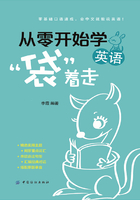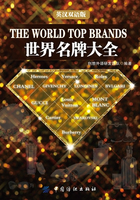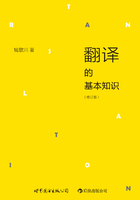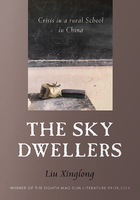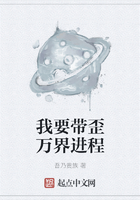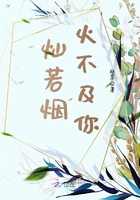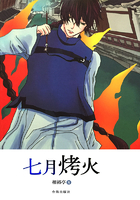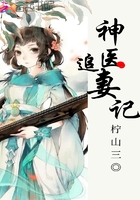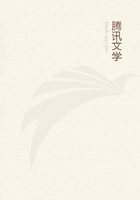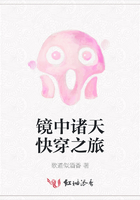Life consists not in holding good cards but in playing those you hold well.—Josh Billings
人生不在于手握一副好牌,而是打好你手上的牌。——乔希·比林斯
A Place to Stand 收费员的美好生活
Charles Garfield
If you have ever gone through a toll booth, you know that your relationship to the person in the booth is not the most intimate① you'll ever have. It is one of life's frequent nonencounters: You hand over some money; you might get change; you drive off.
Late one morning in 1984, headed for lunch in San Francisco, I drove toward a booth. I heard loud music. It sounded like a party. I looked around. No other cars with their windows open. No sound trucks. I looked at the toll booth. Inside it, the man was dancing.
"What are you doing?" I asked.
"I'm having a party," he said.
"What about the rest of the people?" I looked at the other toll booths.
He said, "What do those look like to you?" He pointed down the row of toll booths.
"They look like...toll booths. What do they look like to you?"
He said, "Vertical coffins. At 8:30 every morning, live people get in. Then they die for eight hours. At 4:30, like Lazarus from the dead, they reemerge and go home. For eight hours, brain is on hold, dead on the job. Going through the motions."
I was amazed. This guy had developed a philosophy, a mythology② about his job. Sixteen people dead on the job, and the seventeenth, in precisely the same situation, figures out a way to live. I could not help asking the next question: "Why is it different for you? You're having a good time."
He looked at me. "I knew you were going to ask that. I don't understand why anybody would think my job is boring. I have a corner office, glass on all sides. I can see the Golden Gate, San Francisco, and the Berkeley hills. Half the Western world vacations here and I just stroll③ in every day and practice dancing."
如果你曾开车通过收费站,你就了解收费员与你的关系可谈不上密切;他不过是我们生活中遇到的众多陌生人中的一员:你递给他一些钱,他找你零钱,然后你便驾车离去。
1984年的某天上午晚些时候,我驾车前往旧金山去吃午餐。途中经过一个收费站时,我听见阵阵音乐声,音量开得很大,听上去像是在开派对。我伸出头去四处张望,没看见别的车开着窗户,也没见有广播车经过。我看了看收费亭,原来里面有个人在跳舞。
“你在干什么?”我问。
“我在开派对。”他说。
“那么其他人呢?”我看着其他收费亭。
他用手指着一整排收费亭,说道:“你觉得它们看起来像什么?”
“它们看起来像……收费亭啊。你怎么看?”
他说:“它们像一个个竖起来摆放的棺材。每天早晨8:30,活人走进去。然后,他们在接下去的8个小时里变成死人。下午4:30的时候,他们像拉撒路一样死而复生,他们又活过来,回家去了。在那8个小时里,他们的脑子停滞了,像死人一样机械地重复着工作时仅有的几个动作。”
我很惊讶,这个收费员自己想出了一套哲学,或者说有关工作的一则神话。16个人在工作时死去,还有另外第17个人,处于完全相同的境况,却想出了活过来的方法。我忍不住问他:“你为什么如此特别呢?你看起来很享受工作,过得很愉快嘛。”
他看着我,说道:“我就知道你会这么问。我不明白为什么每个人都觉得我的工作很枯燥。我有一间角落里的办公室,四周都是玻璃窗,能看见金门海峡、旧金山,也能看见伯克利山。西方世界的很多人都前来此处观光度假,而我则每天漫步走入办公室,练习舞步呢。”
【美丽语录】
My secret to a long, healthy life is to always keep working. It keeps me busy and happy, and gives me a reason to stay alive. —Johannes Heesters
我长寿健康的秘诀在于总是不停工作,它给予我忙碌和愉悦,并给了我一个继续生活的理由。——约翰内斯·黑丝特斯
注释
①intimate ['intimeit] a. 亲密的;私人的;关系紧密的
②mythology [mi'θ?l?d?i] n. 神话;神话学;神话集
③stroll [str?ul] v. 闲逛;漫步
What Really Matters in Life
生活中最重要的东西
Jennifer Keitt
A vacationing American businessman was standing on the pier of a quaint coastal fishing village in southern Mexico when a small boat with just one young fisherman pulled into the dock. Inside the small boat were several large yellowfin tuna. The American complimented the Mexican on the quality of his fish.
"How long did it take you to catch them?" the American casually① asked.
"Oh, a few hours," the Mexican replied.
"Why don't you stay out longer and catch more fish?" the American businessman then asked.
The Mexican warmly replied, "With this I have more than enough to support my family's needs."
The businessman then became serious, "But what do you do with the rest of your time?"
Responding with a smile, the Mexican fisherman answered, "I sleep late, play with my children, watch ball games, and take siesta② with my wife. Sometimes in the evenings I take a stroll into the village to see my friends, play the guitar, sing a few songs..."
The American businessman impatiently interrupted, "Look, I have an MBA from Harvard, and I can help you to be more profitable. You can start by fishing several hours longer every day. You can then sell the extra fish you catch. With the extra money, you can buy a bigger boat. With the additional income that larger boat will bring, you can then buy a second boat, a third one, and so on, until you have an entire fleet of fishing boats.
"Then, instead of selling your catch to a middleman you'll be able to sell your fish directly to the processor, or even open your own cannery. Eventually, you could control the product, processing and distribution③. You could leave this tiny coastal village and move to Mexico City, or possibly even LA or New York City, where you could even further expand your enterprise."
Having never thought of such things, the Mexican fisherman asked, "But how long will all this take?"
After a rapid mental calculation, the businessman pronounced, "Probably about 15-20 years, maybe less if you work really hard."
"And then what, senor?" asked the fisherman.
"Why, that's the best part!" answered the businessman with a laugh. "When the time is right, you would sell your company stock to the public and become very rich. You would make millions."
"Millions? Really? What could I do with it all?" asked the young fisherman in disbelief.
The businessman boasted, "Then you could happily retire with all the money you've made. You could move to a quaint coastal fishing village where you could sleep late, play with your grandchildren, watch ballgames, take siesta with your wife, and stroll to the village in the evenings where you could play the guitar and sing with your friends all you want."
The moral④ of the story is: Know what really matters in life, and you may find that it is already much closer than you think.
墨西哥南部一个古朴的沿海小渔村,一位正在度假的美国商人站在码头上。这时,一名年轻渔民拖着一艘小船拉进了岸边码头。小船上有几条很大的黄鳍金枪鱼。美国商人向渔民恭维了几句,夸他的鱼质量真不错。
“你花了多长时间捕到这些鱼的?”美国人随意地问道。
“哦,几个小时吧。”墨西哥人回答。
“你为什么不在海上多待一会儿,再多捕点鱼呢?”美国商人又问。
墨西哥人热情地回答说:“我捕的这些鱼养家糊口绰绰有余了。”
商人变得严肃起来,“那你剩下的时间都做什么?”
墨西哥渔民欣然一笑,回答说:“我会睡个懒觉,和我的孩子们玩耍,看看球赛,和我妻子睡个午觉。晚上的时候,有时我会漫步到村子里,见见朋友,弹弹吉他,唱唱歌……”
美国商人不耐烦地打断了他的话,“你看,我从哈佛毕业,有工商管理硕士学位,我能帮你赚到更多的钱。听着,最初时,你可以每天多花几个小时捕鱼,然后出售多捕的鱼。用卖鱼的钱,你可以买一艘更大的船,这艘船能给你带来更丰厚的收入,然后你就可以买第二艘船,第三艘船,越来越多。最后,你会发现自己已经变得非常富有,拥有一整支捕鱼船队了。”
“再往后,你就不用把你的鱼卖给中间商,而是直接把鱼卖给加工厂,或者干脆自己办一个罐头工厂。最后,你可以控制鱼类加工和销售整个链条。你可以离开这个小渔村,搬到墨西哥城,或者洛杉矶、纽约,在那里进一步扩大你的企业。”
墨西哥渔民从未想过这些,他问:“但是,这得花多久啊?”
商人快速地在脑子里计算了一遍,宣布道:“可能需要15—20年左右。如果你足够努力,也许不用那么久。”
“先生,那然后呢?”渔民问。
“哎呀,这就是最精彩的部分呀!”商人大笑起来。“如果时机合适,把公司股票卖给公众,你就能变得非常富有,成为百万富翁了。”
“百万富翁?真的吗?那么多钱做什么用呢?”年轻渔民半信半疑地问。
商人引以为豪地说道:“然后你就可以带着巨额财富愉快退休了。你可以搬到一个古朴的海边小渔村。你可以睡懒觉,和孩子们玩耍,看看球赛,和妻子睡个午觉。晚上的时候,漫步走进村子里,和朋友弹弹吉他,唱唱歌,做任何你想做的事。”
这个故事的寓意在于:懂得生活中什么是真正重要的东西,然后你会发现实际上它们就在眼前,比你想象的要离你近得多。
【美丽语录】
It is not the place, nor the condition, but the mind alone that can make anyone happy or miserable.
决定人之苦乐的不是地点,也不是环境,而是思想。
注释
①casually ['k??ju?li] ad. 偶然地,随便地,漫不经心地
②siesta [si'est?] n. 午睡
③distribution ['distri'bju:??n] n. 分布;分发,分配;散布;销售量
④moral ['m?r?l] n. 寓意;道德,品行,伦理
Finding Copper Pennies 铜币与人生
Anonymous
There was a small boy who when walking down the street one day found a bright copper penny. He was so excited that he found money and it didn't cost him anything. This experience led him to spend the rest of his days walking with his head down, eyes wide open, looking for treasure.
During his lifetime he found 296 pennies, 48 nickels, 19 dimes, 16 quarters, 2 half dollars and one crinkled① dollar bill. For a total of $13.96.
He got money for nothing. Except that he missed the breathless beauty of 31,369 sunsets, the colorful splendor② of 157 rainbows, the fiery beauty of hundreds of maples nipped by autumn's frost. He never saw white clouds drifting across blue skies, shifting into various wondrous③ formations. Birds flying, sun shining, and the smiles of a thousand passing people are not a part of his memory.
Who do you know that is living like this? Head is bent down burdened with trivial things afraid of pain and criticism and fear of things that never happen hoping to find that copper penny...for nothing.
一天,有位小男孩走在街上,无意之间捡到了一枚铜币。他很兴奋,因为他不费吹灰之力就得到了意外之财。有了这次经历后,在接下来的大半天时间里,他开始压低头、睁大眼睛,不停地沿街搜寻着。
在他的一生中,他一共捡到了296枚1分硬币,48枚5分镍币,19枚10分银币,16枚25分硬币,2张50分纸币以及1张残破的1元纸币,合计共13.96美元。
的确,为了这些金钱,他没有付出任何代价。但是,他错过了31,369次美丽得让人窒息的日出,157次五彩斑斓、光辉壮丽的彩虹,成千上万秋霜尽染中火红炽热的美丽枫叶。他从未留意蔚蓝的天际,朵朵洁白的云儿转瞬变幻,组成一幕幕让人惊叹的奇观;他也不会记得,空中自由的飞鸟,天上夺目的太阳,还有匆匆行人那会心的微笑。
你知道有谁是这样生活着的吗?他们拘泥于日常琐事,对痛苦、批评充满了恐惧,常常杞人忧天,负担沉重,总是弯着腰低下头,希望不费吹灰之力就能找到人生的宝藏。
【美丽语录】
Those who are not looking for happiness are the most likely to find it, because those who are searching forget that the surest way to be happy is to seek happiness for others.—Martin Luther King
不刻意为自己寻找快乐的人最有可能找到快乐,因为寻快乐的人忘记了快乐的捷径在于为他人寻求快乐。——马丁·路德·金
注释
①crinkle ['kri?kl] v. 变皱;沙沙作响
②splendor ['splend?] n. 光辉,壮丽;显赫;辉煌
③wondrous ['w?ndr?s] a. 令人惊奇的;非常的
Adrift 茫然无依之时
Adam Khan
In 1982 Steven Callahan was crossing the Atlantic alone in his sailboat when it struck something and sank. He was out of the shipping lanes and floating in a life raft, alone. His supplies were few. His chances were small. Yet when three fishermen found him seventy-six days later (the longest anyone has survived a shipwreck on a life raft alone), he was alive—much skinnier① than he was when he started, but alive.
His account of how he survived is fascinating. His ingenuity②—how he managed to catch fish, how he fixed his solar still (evaporates③ sea water to make fresh) —is very interesting.
But the thing that caught my eye was how he managed to keep himself going when all hope seemed lost, when there seemed no point in continuing the struggle, when he was suffering greatly, when his life raft was punctured④ and after more than a week struggling with his weak body to fix it, it was still leaking air and wearing him out to keep pumping it up. He was starved. He was desperately dehydrated⑤. He was thoroughly exhausted. Giving up would have seemed the only sane option.
When people survive these kinds of circumstances, they do something with their minds that gives them the courage to keep going. Many people in similarly desperate circumstances give in or go mad. Something the survivors do with their thoughts helps them find the guts to carry on in spite of overwhelming odds.
"I tell myself I can handle it," wrote Callahan in his narrative. "Compared to what others have been through, I'm fortunate. I tell myself these things over and over, building up fortitude⑥..."
I wrote that down after I read it. It struck me as something important. And I've told myself the same thing when my own goals seemed far off or when my problems seemed too overwhelming. And every time I've said it, I have always come back to my senses.
The truth is, our circumstances are only bad compared to something better. But others have been through much worse. I've read enough history to know you and I are lucky to be where we are, when we are, no matter how bad it seems to us compared to our fantasies. It's a sane thought and worth thinking.
So here, coming to us from the extreme edge of survival, are words that can give us strength. Whatever you're going through, tell yourself you can handle it. Compared to what others have been through, you're fortunate. Tell this to yourself over and over, and it will help you get through the rough spots with a little more fortitude.
1982年,史蒂文·卡拉翰驶着帆船独自横渡大西洋时,帆船撞沉了。他偏离了航道,在一艘救生艇上独自一人随着海浪漂浮。食物和水已经所剩不多,他生还的希望十分渺茫。然而,76天(从海难中幸存下来、独自在救生艇上生活的最长时间记录)后,当三位渔民发现他时,他居然还活着,虽然瘦得只剩下了皮包骨头,但总算还活着。
他对自己如何幸存下来的描述非常引人入胜。他是如何利用聪明才智成功地捕鱼,怎样修好他的太阳能蒸馏器(用于蒸馏海水以获得淡水),这是个非常有趣的故事。
但是,最吸引我的在于,在所有希望均告破灭的时候,在受尽折磨、一切努力看似毫无意义的时候,在救生艇被刺穿、费尽力气修了一个多星期还是漏气的时候,在给救生艇打气几乎耗尽了最后一丝气力的时候,他是如何成功地让自己继续活下去的。他极度饥饿,脱水严重,精疲力竭。放弃在当时看起来是唯一理性的选择。
人们在这样的以及类似的情况中幸存下来,是与他们的精神分不开的,精神赋予了他们勇气继续活下去。很多人在类似的绝望境地中选择放弃或者变得疯狂。幸存者们正是因为尚存的理智,才能鼓起勇气继续活下去,尽管情况极端不利。
“我告诉自己,我一定能挺过去。”卡拉翰在他的叙述中写道。“与其他人经历的苦难相比,我算是幸运的。我一遍又一遍地对自己说着这些来增强自己的毅力……”
读到这段话后,我把它当做重要的东西记录下来,因为它深深地震撼了我。当我的目标看起来遥不可及时,当我的问题看起来堆积如山时,我总是告诉自己同样的话,而且每一次我对自己这么说时,我总能恢复理智。
事实上,我们的境况之所以看起来很糟,是因为我们总是把它与更好的境况相比较。但是,别人可能遭遇过更糟糕的情况。我读过很多历史书,因此也了解,无论我们所处的境况与想象相比有多么糟糕,我们还是应该庆幸我们所处的时代和所在的国家。这是一个理智的想法,也值得我们深思。
因此,从追求幸存的极度边缘感受中,我们能得到一些赋予我们力量的信念。无论正在经历什么,告诉你自己一定能挺过去。与他人的经历相比,你是幸运的。一遍又一遍地告诉自己这些,它就能帮助你以更坚强的毅力度过一个又一个难关。
【美丽语录】
Ordinary people believe only in the possible. Extraordinary people visualize not what is possible or probable, but rather what is impossible. And by visualizing the impossible, they begin to see it as possible.— Cherie Carter Scott
平凡者只相信可能的,非凡者想象的不是可能或较可能的,而是不可能的。借由想象不可能,他们开始视之为可能。——雪莉·卡特·史考特
注释
①skinny ['skini] a. 皮的;皮包骨头的
②ingenuity ['ind?i'nju:iti] n. 心灵手巧;独创性;精巧
③evaporate [i'v?p?reit] v. 蒸发,失去水分;消失
④puncture ['p??kt??] v. 刺穿;削弱
⑤dehydrate [di:'haidreit] v. 脱水;去水
⑥fortitude ['f?:titju:d] n. 刚毅,坚毅,不屈不挠
Three Words of Wisdom: "Don't We All?" 我们不都需要帮助吗?
Anonymous
One evening I was parked in front of the mall wiping off my car. I had just come from the car wash and was waiting for my wife to finish work.
Coming my way from across the parking lot, was what society would consider a bum①. From the looks of him he had no car, no home, no clean clothes and no money. There are times when you feel generous, but there are times that you just don't want to be bothered. This was one of the don't-want-to-be-bothered times!
"Hope he doesn't ask me for money," I thought.
He didn't. He came and sat on the curb in front of the bus stop and he didn't look like he could have enough money to even ride the bus.
After a few minutes he spoke. "That's a very nice car," he said. He was ragged②, but had an air of dignity around him.
I said "Thanks", and continued wiping off my car.
He sat there quietly as I worked. The expected plea for money never came. As the silence between us widened, something inside said, "Ask him if he needs any help." I was sure that he would say yes, but I held true to the inner voice.
"Do you need any help?" I asked.
He answered in three simple, but profound, words that I shall never forget. We often look for wisdom in great accomplishments. I expect it from those of higher learning and accomplishments. I expected nothing here but an outstretched grimy hand.
Then, he spoke three words that shook me. "Don't we all?" he said.
I needed help. Maybe not for bus fare or a place to sleep, but I needed help. I reached in my wallet and gave him not only enough for bus fare but enough to get a warm meal and shelter for the day.
Those three little words still ring true. No matter how much you have, no matter how much you have accomplished, we all need help.
No matter how little you have, no matter how loaded you are with problems, even without money or a place to sleep, you can give help. Even if it's just a compliment, you can give that!
You never know when you may see someone that appears to have it all, yet in actuality they need you to give them what they don't have—a different perspective on life, a glimpse of something beautiful, a respite from daily chaos③—that only you, through a torn world can see.
Maybe the man was just a homeless stranger wandering the streets. Maybe he was more than that. Maybe he was sent by a power that is great and wise to minister to a soul too comfortable in himself.
Maybe someone looked down, called an angel, dressed him like a bum, and then said, "Go minister to that man cleaning the car; that man needs help."
Don't we all?
一天傍晚,我把刚洗过的车停在购物中心门前,一边擦拭车身的水渍,一边等妻子下班。
从我站的位置看过去,在停车场的另一头,站着一个会被社会称作“流浪汉”的人。从外表看,他一贫如洗,无家可归,衣衫污浊,更别说有自己的车了。遇到如此情景,有时你会慷慨解囊,但有时你根本不想予以理睬。那时,我就想置之不理,继续擦着我的车。
“希望他不会向我要钱。”我想。
他没有向我伸手要钱。他走过来,在公交车站前的路沿上坐下来。他似乎连坐公交车的钱也没有。
过了几分钟,他开口说话了,“车子不错啊。”他说。尽管他衣衫褴褛,但他却有种威严的神态。
我说了声“谢谢”,然后继续擦我的车。
就在我擦车的时候,他安静地在一旁坐着,并没有如我预想的那样过来要钱。我们之间的气氛变得越发安静了。一个声音从我心底响起:“去问问他是否需要帮助。”我确信他肯定会说需要,但是我还是选择忠于我内心的呼声。
“你需要什么帮助吗?”我问道。
他没有伸出肮脏的双手向我乞讨,他只回答了短短一句。这简单但却很深刻的一句话,让我永生难忘。这样的回答,我原以为只能来自学识渊博、成就卓著的人们,因为我们经常试图从伟大的成就中汲取智慧的养分,却没曾想到从他的口中说了出来。
他说:“我们每个人不都需要帮助吗?”这句话深深震撼了我。
是的,我需要帮助,可能我需要的不是坐公交车的钱,也不是睡觉的地方,但我的确需要帮助。我把手伸进钱包,给了他一些钱。这些钱不仅能让他坐得起公交车,也够他吃顿热饭,找个地方美美地睡一觉。
这句话至今仍言犹在耳,听上去十分真实。无论你拥有多少,也无论你成就了多少,我们都需要帮助。
无论你多么渺小,无论你身上背负多少问题,甚至一文不名,流离失所,你仍然能帮助他人,哪怕只是一句赞美的话——这都是你能给予的!
你永远不知道,有些人的生活看起来近乎完美,什么也不缺,然而,实际上他们需要你给予一些他们没有的东西,可能是看待生活的不同视角,也可能是发现美丽的惊鸿一瞥,又或者是远离日常喧嚣的片刻宁静。而所有这一切,只有你透过这个支离破碎的世界才能发现。
也许这个人不过是个浪迹街头、无家可归的陌生人。也许他还有更复杂的身份。又或许他是伟大而明智的力量派来照料他自己过于闲适安逸的灵魂。
或许神从天堂往人间看了看,叫了一名天使,让他打扮成流浪汉的模样,然后说:“去照顾一下那个擦洗车子的人吧,他需要帮助。”
我们不都需要帮助吗?
【美丽语录】
God helps those who help themselves. —Algernon Sidney
天助自助者。——阿尔吉农·西德尼
注释
①bum[b?m] n.流浪汉,游荡者,懒鬼
②ragged['r?gid] a.衣衫褴褛的,粗糙的,刺耳的, (外形)不规则的, 不完美的
③chaos['kei?s] n.混乱, 无秩序, 混沌
The Cab Ride I'll Never Forget
难忘的出租车之旅
Kent Nerburn
Twenty years ago, I drove a cab for a living. One time I arrived in the middle of the night for a pick up at a building that was dark except for a single light in a ground floor window.
Under these circumstances, many drivers would just honk① once or twice, wait a minute, then drive away. But I had seen too many impoverished② people who depended on taxis as their only means of transportation. Unless a situation smelled of danger, I always went to the door. This passenger might be someone who needs my assistance, I reasoned to myself. So I walked to the door and knocked.
"Just a minute," answered a frail③, elderly voice.
I could hear something being dragged across the floor. After a long pause, the door opened. A small woman in her 80's stood before me. She was wearing a print dress and a pillbox hat with a veil pinned on it, like somebody out of a 1940s movie. By her side was a small nylon suitcase.
The apartment looked as if no one had lived in it for years. All the furniture was covered with sheets. There were no clocks on the walls, no knickknacks or utensils on the counters. In the corner was a cardboard box filled with photos and glassware.
"Would you carry my bag out to the car?" she said. I took the suitcase to the cab, then returned to assist the woman. She took my arm and we walked slowly toward the curb. She kept thanking me for my kindness.
"It's nothing," I told her. "I just try to treat my passengers the way I would want my mother treated."
"Oh, you're such a good boy," she said. When we got in the cab, she gave me an address, then asked, "Could you drive through downtown?"
"It's not the shortest way," I answered quickly.
"Oh, I don't mind," she said. "I'm in no hurry. I'm on my way to a hospice."
I looked in the rear view mirror. Her eyes were glistening.
"I don't have any family left," she continued. "The doctor says I don't have very long."
I quietly reached over and shut off the meter. "What route would you like me to take?" I asked.
For the next two hours, we drove through the city. She showed me the building where she had once worked as an elevator operator. We drove through the neighborhood where she and her husband had lived when they were newlyweds. She had me pull up in front of a furniture warehouse that had once been a ballroom where she had gone dancing as a girl.
Sometimes she'd ask me to slow in front of a particular building or corner and would sit staring into the darkness, saying nothing.
As the first hint of sun was creasing the horizon, she suddenly said, "I'm tired. Let's go now."
We drove in silence to the address she had given me.
It was a low building, like a small convalescent④ home, with a driveway that passed under a portico. Two orderlies came out to the cab as soon as we pulled up. They were solicitous and intent, watching her every move. They must have been expecting her. I opened the trunk and took the small suitcase to the door. The woman was already seated in a wheelchair.
"How much do I owe you?" she asked, reaching into her purse.
"Nothing," I said.
"You have to make a living," she answered.
"There are other passengers."
Almost without thinking, I bent and gave her a hug. She held onto me tightly.
"You gave an old woman a little moment of joy," she said. "Thank you."
I squeezed her hand, then walked into the dim morning light. Behind me, a door shut. It was the sound of the closing of a life.
I didn't pick up any more passengers that shift. I drove aimlessly, lost in thought. For the rest of that day, I could hardly talk. What if that woman had gotten an angry driver, or one who was impatient to end his shift? What if I had refused to take the run, or had honked once, then driven away?
On a quick review, I don't think that I have done anything more important in my life. We're conditioned to think that our lives revolve around great moments. But great moments often catch us unaware—beautifully wrapped in what others may consider a small one.
20年前,我是一名出租车司机。一天深夜,我驾车前往一处房子去接客人。到达时,房子里漆黑一片,只有底层一扇窗里透出一盏灯的光亮。
在这样的情况下,很多司机只会鸣一两次喇叭,等上几分钟,然后就驱车离去。但我见过很多贫穷的人们,他们依赖出租车作为唯一的交通工具。除非我感觉情况危险,否则我总是会走上门去。我心里想,这位乘客有可能需要我的帮助,于是,我走到门前,敲了敲门。
“稍等片刻。”一个虚弱而苍老的声音回答道。
我能听见什么东西在地板上拖曳的声音。又过了很长时间,门打开了。一位80多岁的小个子老太太站在我面前。她身穿一件印花裙,头戴一顶别有面纱的小圆帽,仿佛从20世纪40年代的老电影里走出来似的。她的身边有只尼龙手提箱。
这座公寓看起来似乎已经多年无人居住了。所有家具都用被单盖着,墙上没有挂时钟,柜子上也没有摆放装饰品和器皿。房子一角有一只纸箱,里面装满了照片和各式玻璃器具。
“你能帮我把包抬到车上去吗?”她问。我把手提箱放进车里,然后走回来帮助老太太。她扶着我的胳膊,慢慢地朝路边走去。她不停地感谢我友善的帮助。
“这没什么,”我跟她说,“我只不过用我所希望的别人对待我母亲的方式来对待我的乘客罢了。”
“哦,你是多好的一个孩子啊。”她说。我们上车后,她给了我一个地址,然后问我,“你能不能开车穿过市中心啊?”
“这可不是最近的路呀!”我很快回答说。
“哦,我不介意的,”她说,“我不赶时间。我要去趟护理所。”
我看了看后视镜,她的眼睛里闪着晶莹的光芒。
“我的家人都不在了,”她继续说,“医生说我的时间也不多了。”
我静静地伸手关掉计价器。“你想让我走哪条路线?”我问。
在接下来的两个小时里,我们开车穿越了整座城市。她带我看了她曾经做过电梯操作员的那栋大楼。我们开车经过了她和丈夫刚结婚时居住的街区。她还让我在一家家具仓库门前停车,过去那里曾是一家舞厅,当时还是个姑娘的她常常去那里跳舞。
有时,她会叫我在某栋房子或某个街角放慢车速,她坐在那里,眼睁得大大的,盯着眼前的一片漆黑,一言不发。
随着天边的太阳慢慢爬上地平线,露出最初的一丝光亮,她突然说道:“我累了,咱们走吧。”
我们朝她给我的地址开去,车内一片沉寂。
那是一座低矮的建筑,就像一座小型疗养院,有一条车道在门廊下穿过。我们刚停下车,两个疗养员就走上前来。他们殷勤又热心,细心地看着她的一举一动。他们一定是在等待她的到来。我打开后备箱,把那只小手提箱送到门边。这时,老太太已经坐在轮椅上了。
“我应该给你多少钱呢?”她问道,一边伸手到钱包里取钱。
“不用啦。”我说。
“你还得生活呀。”她回答说。
“还有其他乘客呢。”
几乎不假思索地,我弯下腰来拥抱了她。她也紧紧地抱着我。
“你给一位老人带来了片刻的欢乐,”她说,“谢谢你。”
我捏了捏她的手,然后转身走向屋外淡淡的晨曦。在我身后,传来一扇门关闭的声音,仿佛那是生命即将结束的声音。
在那趟班上,我没再载任何客人。我漫无目的地开着车,陷入了深深的沉思中。那天,我几乎很少开口说话。如果去接老太太的是一名愤怒的司机,或者是一名不耐烦的急着交班的司机,结果会怎样?如果我拒绝老人载她四处看看的要求,或者我只鸣了一次喇叭就开车离去,结果又会怎样?
我快速地回顾了一下自己的人生,我觉得这是我做过的最重要的一件事。我们习惯性地认为我们的生活总是被各种伟大的时刻所围绕着;但是,伟大的时刻常常在我们不经意间就悄然而至,并巧妙地包裹着很多人以为不足为奇的平常外衣。
【美丽语录】
The mystery of life is not a problem to be solved; it is a reality to be experienced.—Jacobus Johannes Leeuw
生活的奥秘并不是一个需要解决的问题,而是一种需要人们去经历的现实。——雅各布斯·约翰内斯·莱乌
注释
①honk [h?:?k] v.(使)雁叫;鸣(汽车喇叭)
②impoverished [im'p?v?ri?t] a. 贫困的,赤贫的;耗竭的
③frail [freil] a. 脆弱的;虚弱的
④convalescent ['k?nv?'lesnt] a. 恢复期的;渐愈的;调养的
Transforming Judgment Into Love
少一些评价,多一些关爱
Fred Burks
I am very blessed to have come to a place where it is fairly easy for me to feel acceptance and love for almost everyone I meet. As arrogance has been the biggest challenge in myself throughout my life, the few times I find myself having difficulty accepting and loving another person now, it is usually because I see and judge in them unbridled① arrogance.
In this last month, I had a most amazing opportunity which challenged me to be able to accept arrogance in another and find love for him in a very profound way. George is an instructor who I interpreted for almost two years ago in a two-week course for Indonesian investigative police. George had the nasty habit of criticizing and belittling② almost everything everyone did in the course. He believed being harsh and critical was the best way to make the students try harder. Though the students did learn, he did a very good job of making every participant feel inferior to him by the end of the course. One woman even cried at one point as George called her everything but stupid in how she performed an exercise.
By the end of that two weeks, I couldn't wait to get away from George. I had never encountered someone so arrogant and insensitive. I was very aware at the time that I had failed to find acceptance and love for him, yet I just hoped I wouldn't have to work with him again.
Last month at another two-week training, I didn't realize until it was already too late that I would be working with George again. But I have grown a lot in the last two years, so I was able to see this training clearly as a powerful challenge and opportunity for me to try my best to accept George for who he is.
So this time, from the very first day I consciously choose to look past my judgment. I chose instead to focus on opening to the deeper part of George, to his divine light within. I chose to do my best not to try to change him, but rather to try to accept and understand him for who he is. As I opened to that deeper part of him, I was able to feel his pain and woundedness. I had a sense that somehow he had been severely criticized and belittled as a child—just as I had. I felt his deep need to compensate for this by proving both to himself and others that he was better than everyone else. This may well have led to the arrogance I saw in him, the same arrogance I dealt with so much early in my life. I realized that it was my own righteousness③ about having overcome my arrogance which made me judge George so harshly. That which I had come from is what triggered me most and what I judged most severely.
With these realizations, I was for the first time able to open to seeing George for all that he is. During breaks we had a number of rich conversations about his personal life. He told me meaningful things like how much he loved being a father and how his daughter so loved him. He told me how important it was for him to be very strict with this daughter as a way of loving her.
During one lunch break, I gathered my courage and shared with him how difficult the previous course had been for me as I had felt he was excessively critical with the students. I told him I still felt this, but that now I wanted to get to know him and understand why he did what he did. He heard me and clearly respected my deep desire to be honest and open with me. He shared very deeply about why he acts the way he does. He even acknowledged that he is overly harsh at times. We shared in a number of deep, meaningful talks. By the end of the course, we left feeling a sincere bond of friendship and trust. I had found not only acceptance and understanding, but even a sincere love for George and for what he is trying to do.
Amazingly, throughout this course, George was significantly less critical and belittling than he had been two years earlier. He even praised people a number of times—something he had almost never done before. My own unresolved arrogance led to the thought that my openness had caused this change. Yet as soon as this thought arose, I recognized its source and quickly corrected myself. Yes, my openness and acceptance of George in these two weeks may have inspired him in some small way to be more open and less critical. Yet I also recognize that like me, he is learning and growing as he grows older, too. He is learning to be more supportive, and I am learning to be less judgmental④ and more loving.
What a powerful lesson for me! What a wonderful change! Now, when I see people with unbridled arrogance and my judgment kicks in, I feel inspired to more easily recognize what's happening. I am inspired to look deeper to find acceptance and love of even people with a lot of arrogance, for we are all sacred creations of God. Now, I can recognize my own weakness. I can more easily recognize my own judgment which keeps me from accepting others as they are. After this empowering experience, I am inspired even more to support every person, arrogant or not, to be the best they can be. Thank you so much George, and thank you Spirit and my GCA friends, for helping me so beautifully to transform judgment into love.
很幸运地,我已经达到了一种境界,我能很容易地接受并关爱我所遇见的几乎每一个人。但是,傲慢自大是我一生中遇到的最大的挑战。现在偶尔有那么几次,我发现自己很难接受和关爱另一个人,这通常也是因为我在他们身上看到了肆无忌惮的傲慢。
就在上个月,我得到一个绝佳的机会,挑战自己去接受另一个人身上的傲慢,并深沉地去爱他。大约两年前,乔治在为期两周的印尼警方调查课程中担任讲师,当时我曾经给他做过口译。他有一个令人讨厌的习惯,他总是批评和贬低每个人在课程里做的几乎每一件事。他认为,苛刻和批评是促使学生更加努力学习的最好方法。学生们的确学到了一些东西,但他也成功地使每个学生在课程结束后都觉得自惭形秽,远不如他。一位女学生有一回甚至被弄哭了,因为乔治把她某次练习中的表现称为愚不可及。
那两个星期结束后,我迫不及待地想要离开乔治,因为我从未遇到过像他这样傲慢自大而又麻木不仁的人。那时,我很清楚我没能接受他,更别说去爱他,我只是希望我不用再次与他共事。
上个月,又一期两周培训开始了,我发现我不得不与乔治再次共事,因为等我反应过来时已经太迟了。但是,在过去的两年里,我成长了很多,我能够把这次培训视为一次有力的挑战,也是一次难得的机会,让我能尽全力接受真实的乔治。
所以这一次,从最初的第一天起,我就有意识地选择忽略我以前的判断。我选择以开放的心态专注于更深层的乔治,专注于他的内在散发出来的神圣光芒。我选择尽量不要试图改变他,而是努力接受和理解真实的他。当我打开心扉深入他的内心时,我能够感觉到他的痛苦和创伤。我有一种预感,不知何故,他在孩提时代应该曾饱受严厉的批评和贬低,就像我小时候一样。我觉得他内心深处有一种迫切的需要,需要通过向自己和他人证明他比任何人做得都更好,来弥补小时候的心灵创伤。这很可能就导致了我在他身上看见的傲慢。在我早年的生活里,我也曾费尽心思消除我内心里与他同样的傲慢。我意识到,正是我自己成功克服傲慢所获得的正义感,促使我如此苛刻地评判乔治,这也解释了到底是什么东西触发了我,让我对他做出了最严苛的主观评判。
意识到这些以后,我第一次能够释然地面对真实的乔治。在休息时,我们聊了很多关于他个人生活的话题。他告诉了我一些很有意义的事,比如他多么喜欢做一个父亲,以及他的女儿有多么爱他。他告诉我说,他总是严格要求女儿,并以这样严格的方式爱她,这对他来说非常重要。
一次午餐时,我鼓起勇气和他谈起以前的课程对我来说多么难熬,因为我觉得他对学生过于苛责了。我告诉他现在我仍然这么认为,但是,现在我想要了解他,理解他为什么要这么做。他听着我的话,显然非常尊重我深切的渴望,希望我们之间能开诚布公。他深刻地分享了他为什么会有这种行为方式的原因。他甚至承认,有些时候他是过于严厉了。我们共享了许多深刻、有意义的谈话。课程结束后分开时,我们都能感觉到真诚的友谊和信任。我发现自己不仅接受并理解了他,而且能真诚地去爱他以及他想做的事。
令人惊讶的是,在这次培训课程中,乔治比两年之前明显减少了批评和贬低。他甚至称赞了学生们很多次,这是他以前几乎从未做过的。我内心仍未消除的傲慢让我以为,是自己的开明导致了这种变化。然而,这个想法刚一冒出来,我就认出了它的来源,迅速纠正了我自己。是的,在这两个星期里,我的开明和接受可能以细微的方式启发了他,让他变得更开明、更乐于肯定和赞美他人。然而,我也认识到,像我一样,随着年纪的增长,他也学习和成长了。他正在学会给予他人更多的支持和帮助,而我则在学习少一些评判、多一些关爱。
对我而言,这是多么有益的一课!这是多么美妙的改变!现在,每当我看到人们肆无忌惮的傲慢,而我的主观评判便随即介入时,我就更容易觉察到这中间是怎么回事。我总是会深受启发,试图看得更深入一些,去接纳与关爱这些无比傲慢的人们,因为我们都是上帝神圣的创造。现在,我能认识到自己的弱点。我能更容易地意识到,是我的主观评判妨碍了自己去接受他人的真实面貌。有了这次赋予人力量的经历后,我深受启发,也更加支持每个人;无论他们傲慢与否,都要帮助他们达到最好状态。非常感谢乔治,感谢神灵和我的朋友们,帮助我那么漂亮地把主观评判转变成了无私的关爱。
【美丽语录】
Any judgment I have of others is on some level a reflection of myself. —Fred Burks
我对他人的任何评判在某种程度上反映出自己身上的种种不足。——弗雷德·伯克斯
注释
①unbridled [?n'braidld] a. 无拘束的;激烈的;放纵的
②belittle [bi'litl] v. 轻视,贬低;使相形见小
③righteousness ['rait??snis] n. 正当,正义;正直
④judgmental [d??d?'mentl] a. 判断的;审判的


